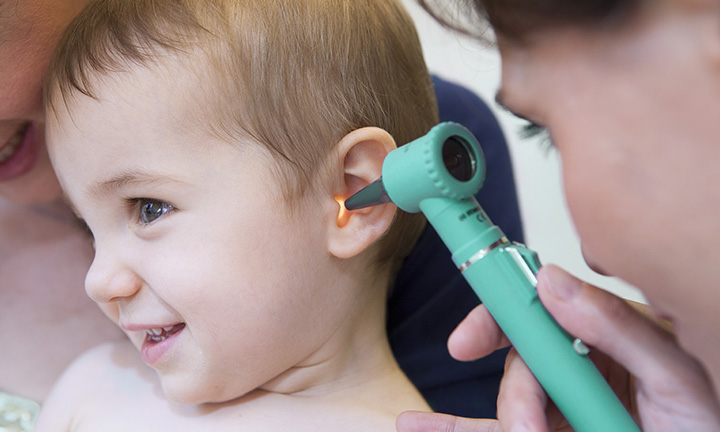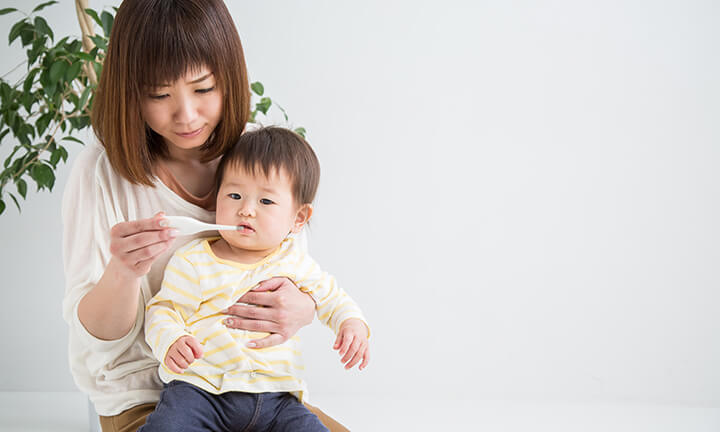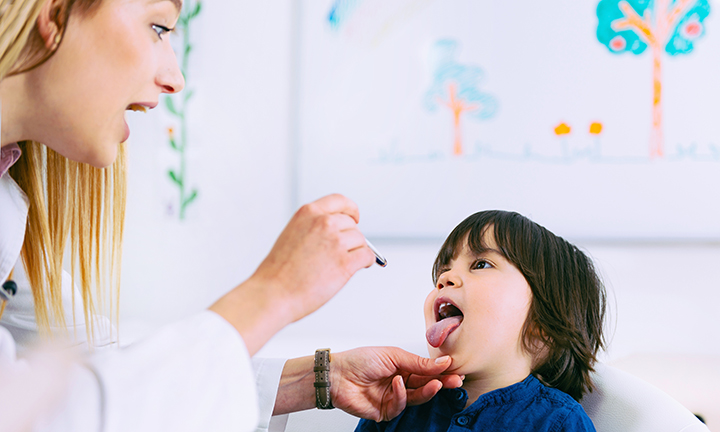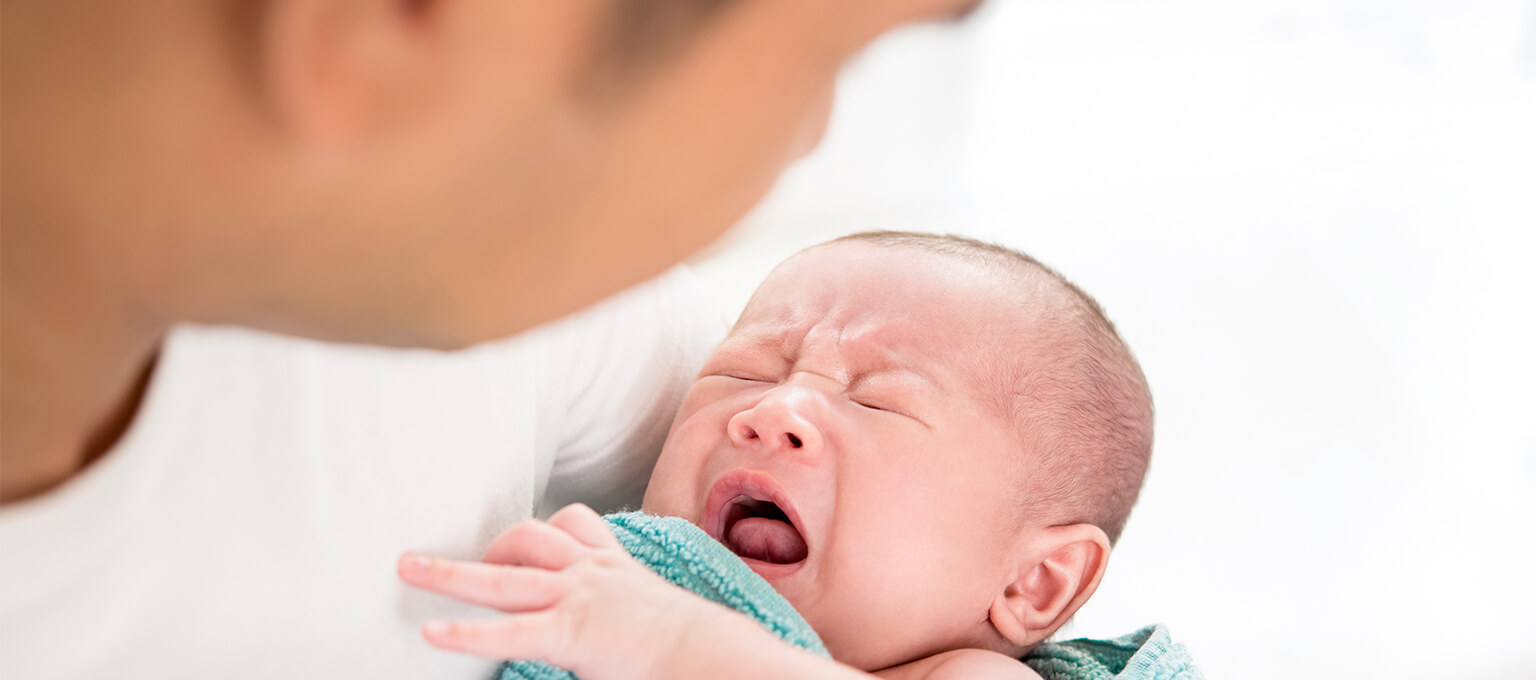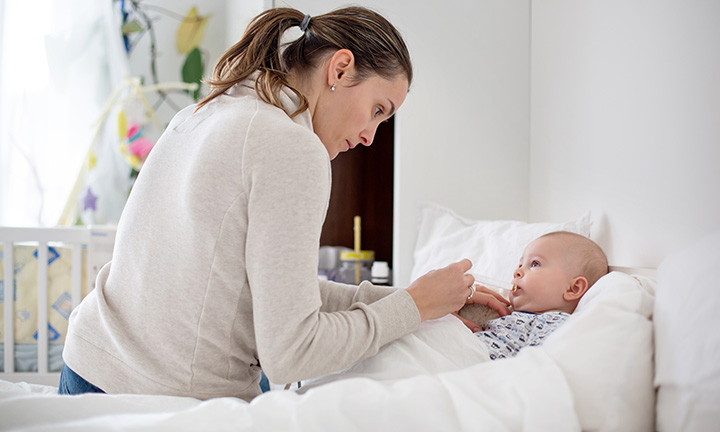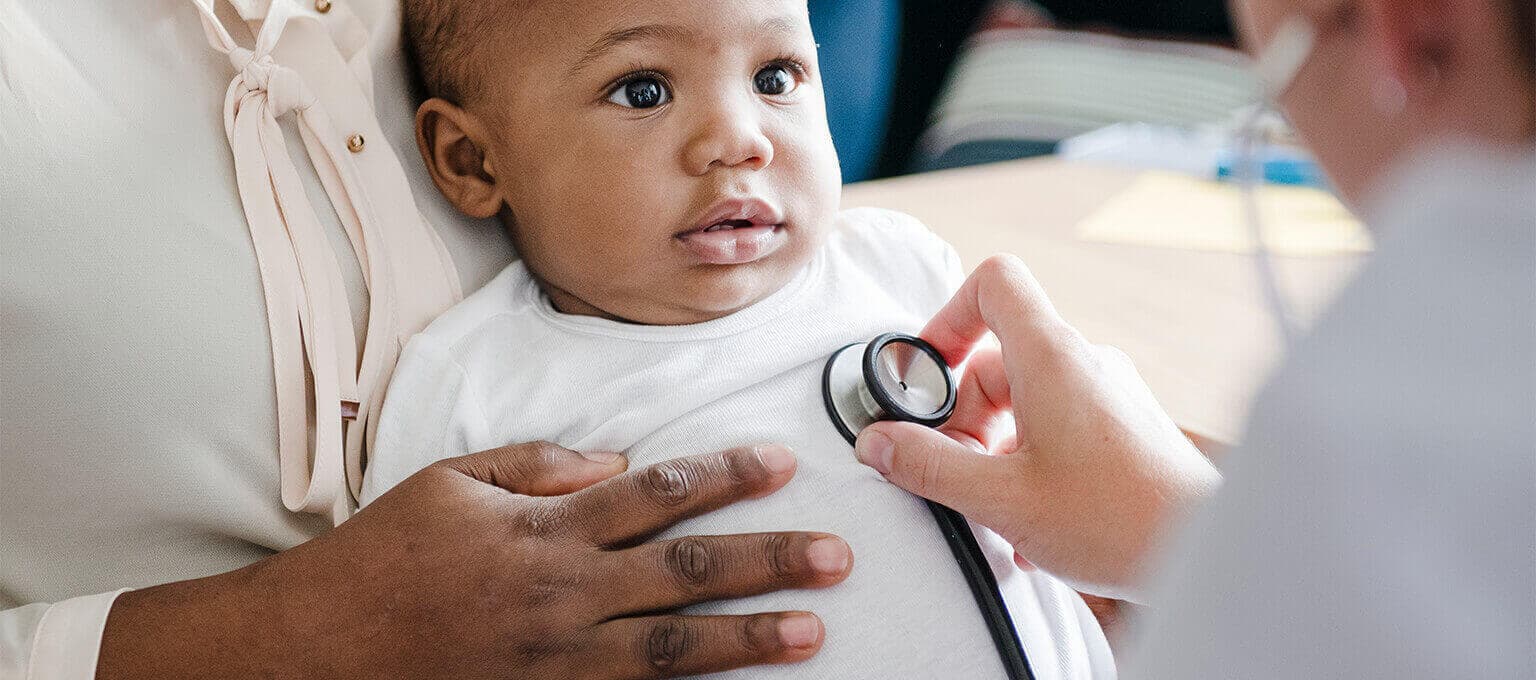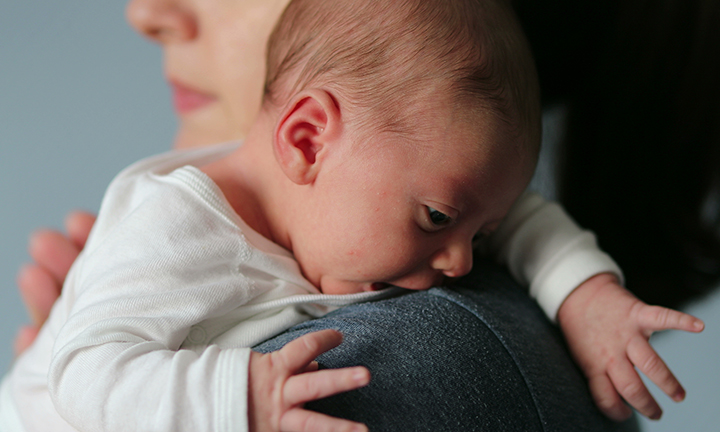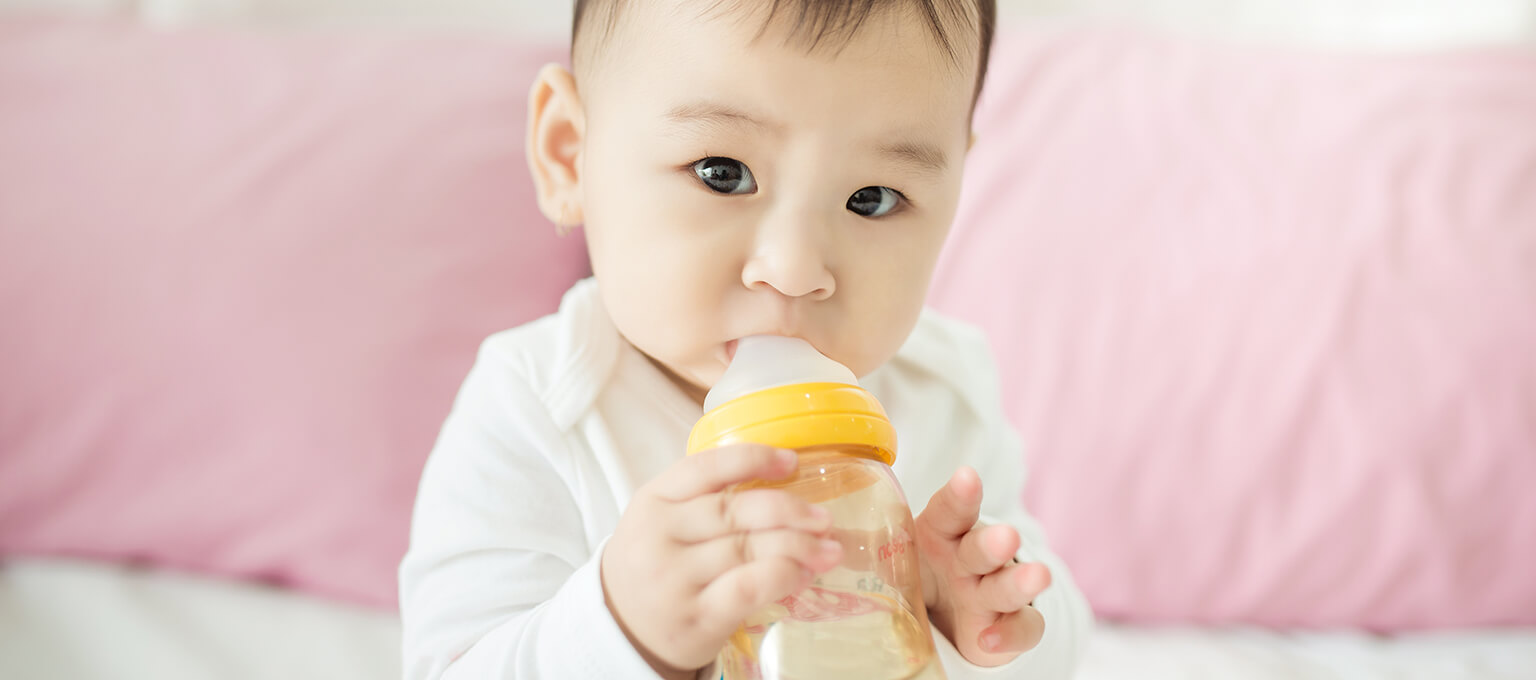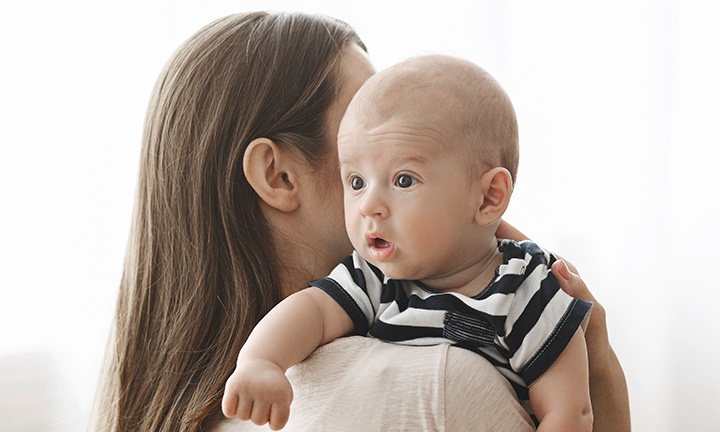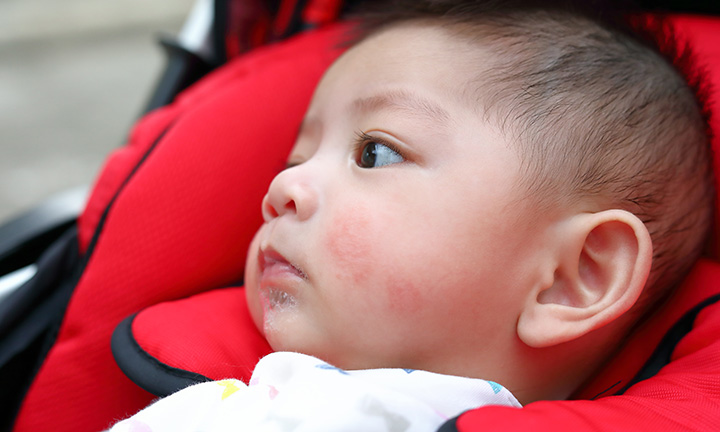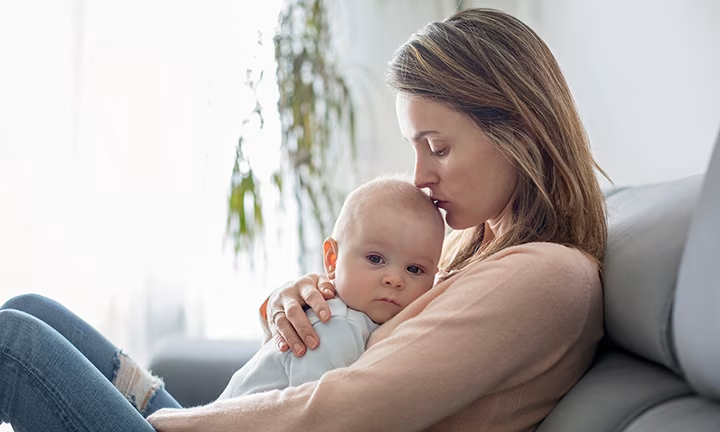
RSV in Babies and Toddlers


Respiratory Syncytial Virus (RSV) is a strange-sounding name for an illness you may not have heard of, but it’s more common than you think. In fact, it’s one of the viruses that can cause cold symptoms. Find out more about RSV and learn how to recognize the signs in infants and babies, as well as how the infection can be treated.
What Is RSV in Babies?
RSV is short for Respiratory Syncytial Virus and is just one of many viruses that can cause a common cold symptoms in babies, children, and adults. In some cases, RSV can lead to bronchiolitis or pneumonia in children younger than 1 year old.
How Common Is RSV in Babies?
RSV is most common in babies between 2 and 8 months of age, and in infants and young children, RSV is the most common cause of lower respiratory tract infections.
In fact, RSV is so common that nearly all children get the infection by the time they reach 3 years old. Luckily, in most cases, it will only cause an upper respiratory infection and have cold-like symptoms. For a smaller number of children, the RSV infection may lead to a lower respiratory infection (bronchiolitis), which may need medical care.
Signs and Symptoms of RSV in Babies
The upper respiratory (cold-like) symptoms of an RSV infection can include:
How Is RSV Diagnosed?
If you suspect your little one has the symptoms of RSV or another respiratory infection, call your child’s healthcare provider. You may be asked to describe their symptoms and take them in for a physical exam.
In some cases, to help make a diagnosis, the provider may swab your baby’s nose for a sample to test for the RSV virus or order an X-ray to check for pneumonia.
How Do Babies Get RSV?
RSV is highly contagious and usually occurs from October through March, which is the cold and flu season. RSV transmission can occur through saliva droplets when someone coughs or sneezes. It can live on surfaces like countertops for up to six hours and on your hands for up to 30 minutes or even longer. Your child can get infected after touching anything that has been contaminated and then touching their mouth, nose, or eyes.
The RSV virus can spread quickly at daycare centers and schools. Your baby can easily get it at daycare or from an older sibling who carries the virus home from school.
Keep in mind that if your baby has an RSV infection, they can spread it through direct contact with anyone. Someone who kisses your little one's face, for example, could potentially pick up the virus.
What Are the Causes of RSV?
RSV is caused by a viral infection that primarily affects the respiratory system. As we mentioned above, it spreads through contact with respiratory droplets from an infected person, making it highly contagious, especially in crowded or close-contact settings like daycare.
How Serious is RSV?
If the RSV infection spreads to the lower respiratory tract, it can lead to bronchiolitis, an infection of the small airways of the lungs. It's not the same illness as bronchitis, which is an infection of the larger airways of the lungs. The symptoms of bronchiolitis include:
Infants may be at a higher risk of severe RSV if they can be described as any of the following:
How Long Does RSV Last in Babies?
The RSV infection can last from one week to several weeks, depending on its severity.
Are There Long-Term Side Effects of RSV?
Most babies recover fully from RSV without any lasting effects. However, in some cases, especially if the infection was severe, there may be a few long-term side effects. These may include an increased risk of developing wheezing or asthma-like symptoms later in childhood.
Can You Get RSV More Than Once?
If you’re wondering whether you can get RSV multiple times, the answer is yes. It’s possible to get infected with RSV again, even during the same season. In general, the symptoms may be less severe than the first infection, but it’s a good idea to keep an eye on your baby's symptoms as their immune systems are usually weaker than adults. Check out our section on When Should You Contact Your Baby’s Healthcare Provider? for symptoms to watch out for.
RSV Treatment
There is no medication to treat an RSV infection, which is a viral infection. Antibiotics would not be prescribed because antibiotics are effective only for bacterial infections.
However, there are some things you can do at home to ease your child’s symptoms and help your little one feel more comfortable:
If your baby has a more severe case of RSV, the healthcare provider may give your little one medication via a nebulizer to help open up the breathing tubes. This approach can help some babies and may prevent the need for hospitalization.
If the RSV infection has resulted in bronchiolitis, your baby’s provider may recommend hospitalization, especially if your little one is having trouble breathing, eating, or drinking.
How to Prevent RSV in Babies
Although you can’t completely protect your baby from infections like RSV, there are some simple steps you can take to reduce your little one’s risk of coming into contact with the RSV virus and getting infected:
RSV Immunizations?
When Should You Contact Your Baby’s Healthcare Provider?
Contact your child’s healthcare provider as soon as you can if you observe any of these behaviors or symptoms in your baby:
The Bottom Line
The RSV virus is one of the viruses that your little one may catch. Typically, it causes only cold-like symptoms and will resolve within a few days or weeks, but in some cases, it can lead to complications and even require hospitalization.
Good hygiene habits like regular handwashing, disinfecting surfaces, and keeping your baby away from anyone who has cold-like symptoms can help prevent your child from becoming infected with RSV. There are also immunizations for both mom and baby that can prevent more serious RSV infections.
But if your little one does catch it, some simple at-home TLC will likely work to get them back to health in no time. If your child has more severe symptoms, the healthcare provider will be able to make a diagnosis and recommend the next steps in treatment.
To make things a little easier, download the Pampers Rewards App for rewards on your diaper purchases.
- Centers for Disease Control and Prevention (CDC). “People at High Risk for Severe RSV Infection.”
- Centers for Disease Control and Prevention (CDC). “RSV in Infants and Young Children.”
- Centers for Disease Control and Prevention (CDC). “RSV Transmission.”
- Centers for Disease Control and Prevention (CDC). “The Flu Season.”
- Healthy Children. “RSV: When It's More Than Just a Cold.”
- Kids Health. “Respiratory Syncytial Virus.”
- Mayo Clinic. “Respiratory Syncytial Virus (RSV).”
Read more about Baby
Related Articles
Join a World of Support
through Pregnancy and Parenthood.
TRACK WITH TOOLS
LEARN WITH EXPERTS
GET REWARDED


